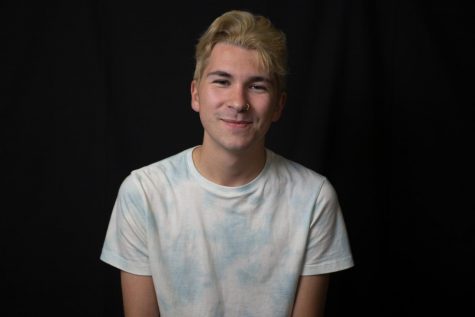The number of students seeking mental health services at Santa Rosa Junior College has doubled since last month’s fires, and the administration covered all its bases to successfully prevent mass disenrollment.
Dean of Student Affairs Robert Ethington led the response to make services available to students and encourage them to persevere through the semester following the fires.
“I believe that one contributing factor to the low number of students who dropped because of the fires is the immediate and comprehensive response from SRJC staff,” Ethington said. “We began communicating about all of the support services available to students on Monday, Oct. 9 and continually until classes resumed on Oct. 23.”
Despite over 900 students losing their homes, only 34 students completely withdrew from classes and 89 dropped one or more classes but remained enrolled as of Nov. 8, according to Freyja Pereira, dean of Admissions, Records & Enrollment Management.
Pereira also credits the college’s rapid and far-reaching response for the astounding retention rate. “SRJC, especially Robert’s team, acted immediately to provide students with the assistance they needed,” she said.
In addition to academic and financial counseling, the college has emphasized the availability of on-campus mental health services and referrals to outside providers in an attempt to help students transition back to school.
SRJC student Alex Simms, 21, has taken advantage of free therapy sessions at the Student Health Center after losing her home in the Oct. 8 wildfires.
“Their drop-in hours are really nice to have. I’ve taken advantage of them especially since my classes get out around the time they are open,” Simms said. “I know they have had staff come in from everywhere in the Bay Area just to have their services accessible to as many students as possible.”
Normal responses students suffered after the fires included confusion, intrusive thoughts, shock, sorrow, extreme withdrawal, interpersonal conflict and fatigue.
Student Health Services warns that disrupted sleep is the most common and dangerous symptom. Sleep problems can spur a chain reaction of mental health disturbances.
“The most common symptom is losing sleep,” said Susan Quinn, director of Student Health Services. “That’s very problematic for a person’s health because the lack of sleep impacts the ability of your brain to process information and it influences your immune system. Without sleep you just can’t think straight.”
Quinn said that it is difficult to predict if symptoms will lead to further mental health problems, so it’s important students practice self-care and seek help if they need it.
“You have people who didn’t lose things in the fire, but it triggers feelings of loss and anxiety that are just as severe as someone who maybe lost everything,” Quinn said.
Dr. Bert Epstein, Psy. D., assistant director of Student Health Services, said issues around mental health are completely natural following the trauma Sonoma County faced last month.
“It’s very much an expectation and normal process for people to have challenging reactions to loss and trauma,” Epstein said.
However, if disruptive symptoms like lack of sleep persist beyond one month, sufferers should consider seeking resources to help manage these reactions.
More information about mental health services is available at Student Health Services.



